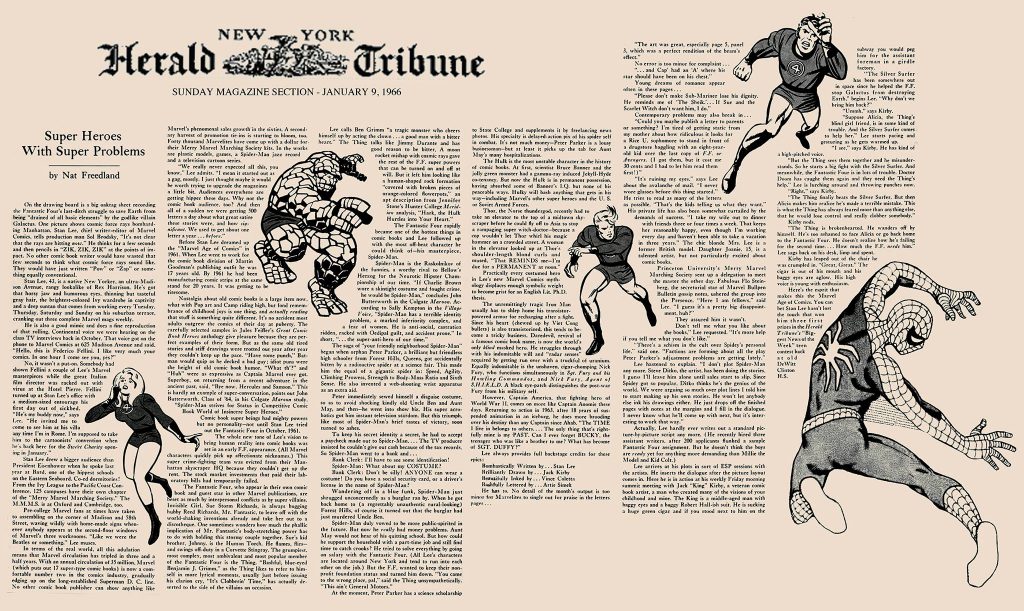I think it would be fair to ask: why go through all the trouble with this Stan Lee take-down? One day, when my own resolve was wavering, I found myself waiting in line at the pharmacy check out. Glancing at the magazine rack I spotted an issue of Entertainment Weekly that was dedicated to the new Spider-Man movie. On the cover was a conspicuous blue circle containing the story title: “How Stan Lee Created Peter Parker.” Since an infamous 1966 Herald Tribune article fawned over a charming and charismatic Stan Lee and marginalized workhorse Jack Kirby, the lion’s share of press and publicity related to the early days of Marvel Comics paints Lee as its source and progenitor. Much can be attributed to lazy journalism, much can be attributed to Lee’s ever-growing resistance to set the record straight. Regardless of how the myth evolved, I believe there is a duty to examine the issue of creatorship with a more precise and fairer lens, at the very least to support the folks legitimately responsible for the characters and stories so many of us have come to cherish. Fortunately, efforts have been made to set the record straight, futile as they seem to be. I had the fortunate opportunity to interview True Believer author Abraham Riesman who had this hope for his book:
You’re not gonna change people’s minds all that much. This is for future generations, for me. This is for people who are gonna come to the topic cold. When you write a biography, you have to be thinking: in 300 years there’s gonna be someone coming to this topic cold and looking for a roughly contemporary biography that had primary source material in it and that can be an introduction into who the person is. That’s who I’m writing for (Riesman, 2021).

I did not come to the topic cold but I was certainly unaware of just how anemic Stan Lee’s creative juices were. My second reading of True Believer was dedicated to identifying and noting all of the episodes in which Lee pitched ideas that eventually fell flat. My highlighter ran out of ink. That the prolific pantheon of Marvel characters created in the 1960s is just as popular today as it was when introduced 60 years ago is testament to a profound creativity far transcending the gimmicky approach of Stan Lee. After an honest look at his concepts, created without Jack Kirby or Steve Ditko collaborations, concluding that he was the fount of ideas behind Marvel’s robust mythology truly requires blinders and a gullible leap of faith. Referring to post-Kirby days at Marvel Comics, Riesman observed: “Losing Kirby had been like losing a limb, and [Lee] hadn’t since garnered the kind of praise he’d had when the two were working together. Indeed, he never would again. Stan’s good days as a respected creator of new material were, unbeknownst to him at the time, permanently over” (Riesman, 2021). That he was ever seen as the creator of new material at Marvel is overly generous. Unfortunately, there always seems to be an audience eager to fawn over charismatic con men. Hopefully, in time, this story will resolve like so many comic book tales, where injustice is righted and the true heroes are recognized for their contributions.